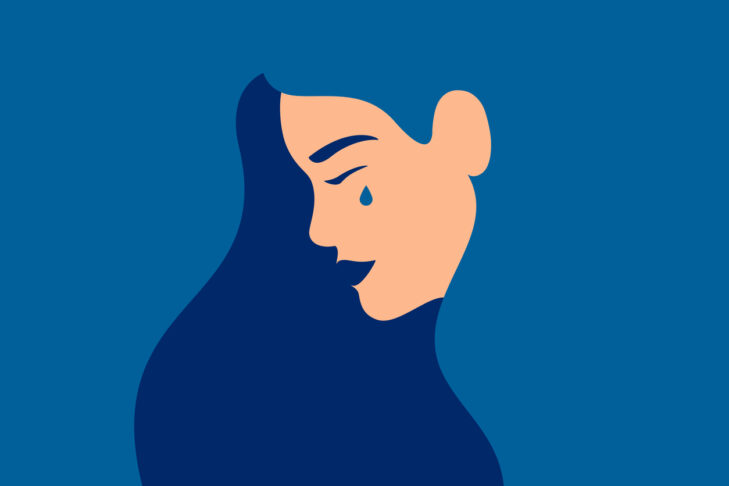My mom died on Tuesday. I’ve been visualizing those words on the page for months—ever since her health began to seriously deteriorate due to heart failure this winter—and seeing them here just isn’t shocking anymore. My mom is gone; it’s a clinical fact and was completely inevitable. The only question mark was the day and month. Would it be a Sunday? A Monday? June? July? But the outcome—her absence, her death, and all the deep-void finality that entails—wasn’t a surprise. It was coming. I had time to prepare (which doesn’t matter, because you can never be prepared). All this feels like a twisted déjà vu.
I’m going to write more deeply about her health and decline and the sorrow that went along with it soon, but right now, well, I’m 48 hours removed from her being wheeled out of my childhood home on a stretcher and, even though I’m not shocked, I’m sad. Angry. Primally bereft. I spent yesterday in bed sobbing like a wounded, abandoned animal. This is normal, I hear.
I know many others share my pain. We’re at that age, as parents, when our own parents begin to fail. Maybe it’s a slow fade: Alzheimer’s, dementia, a protracted battle with cancer. Maybe it’s sudden: stroke, heart attack. Maybe our parents are still here, sort of, but just not in the capacity we quite need anymore. The fridge that used to be stocked with our favorite foods now has expired milk and takeout; the car keys need to be taken away; a childhood home is replaced by a one-level condo, or a childhood bedroom becomes an office or a repository for laundry. Many of us know the drill.
So, here I am, a motherless daughter with a whopping two days of experience. In that very senior role, well, here are some things that have helped me, both in my anticipatory grief and right now as I wade through a miasma of sadness. What helped get you through those first raw hours and days? Tell me. I want to know. I need to know.
- It feels good just to see text messages from people who care even though right now I’m working on basics like breathing, dry-swallowing food and not waking up at 2 a.m. checking to see if I missed a call from hospice. I am a hyper-fast texter, and I’m off by a few beats. But even just seeing a message made me feel validated and supported.
- My bed. I have always loved my bed, but right now, I adore it. And my weighted blanket. And my body pillow. And my soft white sheets. I can curl up and sob like a feral animal without anyone seeing me. It’s like being back in the womb. I’m a mom of two kids, but right now, I am also letting myself cry like a child.
- Reminding myself that my dad is still alive. He is healthy. He isn’t sick. I still have one functional parent. I am not an orphan.
- My mom’s gold hoop earrings. I took them off her ears and put them on before she was bundled off. They are warped, tarnished things at this point, but I don’t care.
- Social media. Yeah, it can be evil and pulverize your self-esteem, but when I posted the news about my mother, it felt amazing to get messages about her—to have a visual representation of people caring. Some people I hadn’t heard from in years wrote me with very distinct memories of her.
- Giving myself permission to wallow. I am a huge workaholic. I work a lot. That’s because I enjoy my work. I’m lucky to do something I truly consider a hobby—it doesn’t even feel like effort a lot of days. I barely took maternity leave and usually even do a tiny bit of work on vacation. But this week, well, I just can’t. Focusing is impossible. I am depleted. I am disorganized. I am checking out. (Well, except for this post, which is actually cathartic and doesn’t feel like work, either.) You know what gets people off your back pretty quickly? Telling them your mother died. Folks tend to be pretty understanding about mortal trifles like deadlines.
- Going to CVS. I just bought the dumbest stuff there: orange nail polish, some strange Bioré nose mask, a conditioner that always seemed too pricy but my mom just died so, too bad! I’m not a big shopper, but this is currently soothing to me.
- My kids. They are relatively unfazed, which I know is age-appropriate. Just knowing I have another family, beyond my family of origin, keeps me tethered. I am more than my mom’s child—I am also someone’s mother. I have other people who care who will hopefully live a long time.
- Letting friends help. As a society, we’re conditioned to be polite. To say, “Don’t worry about it!” To be stoic and easy, not a burden. This week, if someone asks what they can do for me, I am getting used to the uncomfortable sensation of verbalizing what I need.
It also helps me to know we’re all going to be here someday—unless we have the misfortune of dying before our parents—and, trite though it is, this is a normal, natural part of life. I see people all around me who have survived the death of a parent. They are functional, thriving. Living out the organic order of things. It is a universal experience, though completely unique to the person going through it at the time. But I know I’m not alone—even though, without my mom, I am so very lonely.



